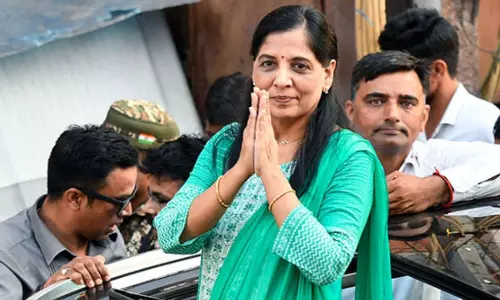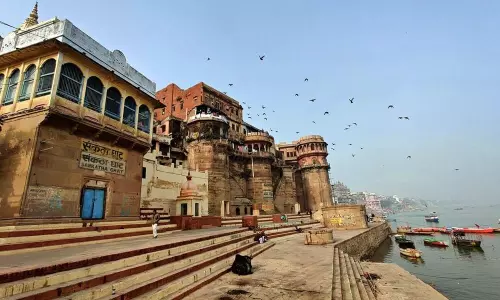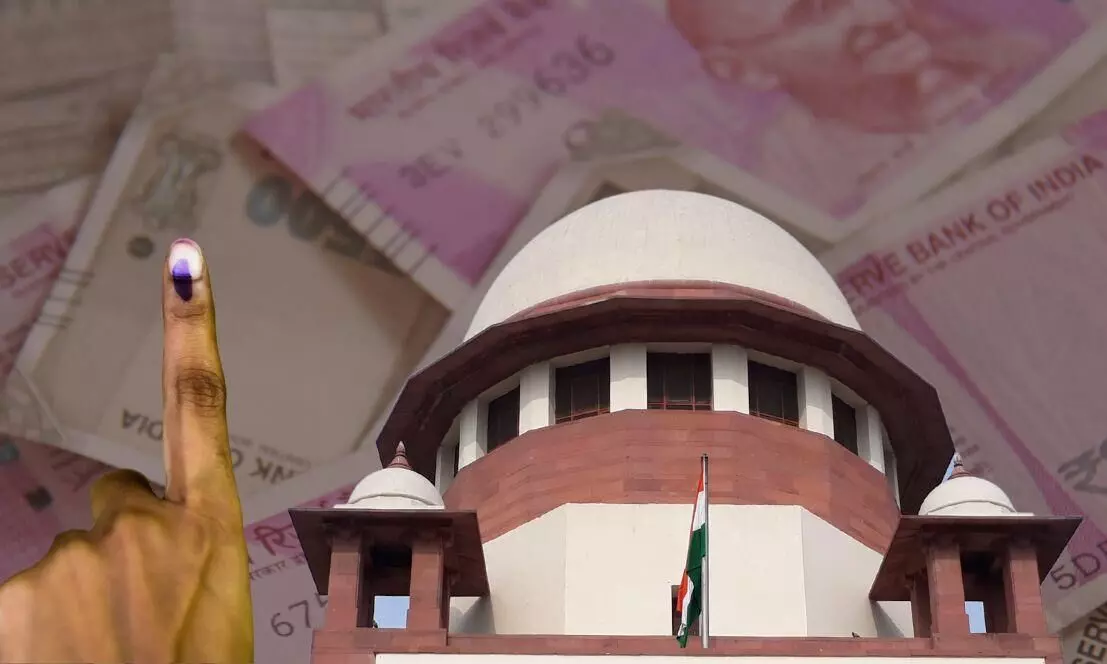
Petitioners call electoral bonds ‘anonymous white channels of black money’
text_fieldsNew Delhi: The five-judge Constitution Bench, which began hearing a batch of petitions challenging the electoral bonds scheme introduced by the first Modi government in 2017 on Tuesday, heard petitioners labelling the bonds as 'anonymous white channels of black money,' creating an alternative opaque route for political funding.
Petitioners also argued that the scheme undermines the fundamental principles of the Indian Constitution.
The petitioners, including the CPI(M), assert that electoral bonds are against the spirit of transparency, questioning the necessity for anonymity in political donations.
Senior advocate Prashant Bhushan, representing the Association for Democratic Reforms (ADR), argued that electoral bonds compromise the people's right to be informed about political financing, leading to potential corruption.
Bhushan pointed out that earlier regulations required parties to disclose donors contributing over Rs 20,000, but recent amendments removed this obligation. The anonymity of electoral bonds, he argued, allows the government exclusive knowledge of donors, creating an imbalance between ruling and opposition parties.
Chief Justice of India DY Chandrachud, who leads the Constitution Bench, acknowledged the potential repercussions for businesses supporting non-ruling parties in their states.
Highlighting the lack of transparency, Bhushan revealed that over 50% of electoral bonds go to the ruling party, with less than 1% reaching the opposition. He stressed that citizens, with the right to know about candidates' details, should also have the right to transparency in political funding.
The debate expanded to the corporate sector's influence, with senior advocate Kapil Sibal contending that corporate donations, whether transparent or not, disrupt the level playing field in elections. Sibal argued that electoral bonds, instead of promoting fair elections, serve as a means for political parties to amass wealth without any connection to the electoral process.
Advocate Shadan Farasat, representing CPI(M), asserted that the electoral bonds scheme does not combat black money but establishes an anonymous white channel. He argued that this contradicts the concept of an informed electorate and violates constitutional rights.
The case took a corporate turn with the revelation that Vedanta's donations through electoral bonds increased, despite reports of financial strain. Bhushan cited a Business Standard report, stating that Vedanta donated Rs 457 crore in the last five years. This information raised concerns about the intersection of corporate interests and political funding.
As the legal battle unfolds, the petitioners contend that the electoral bonds scheme not only jeopardizes transparency but also poses a threat to the foundational principles of fair and informed democratic participation























